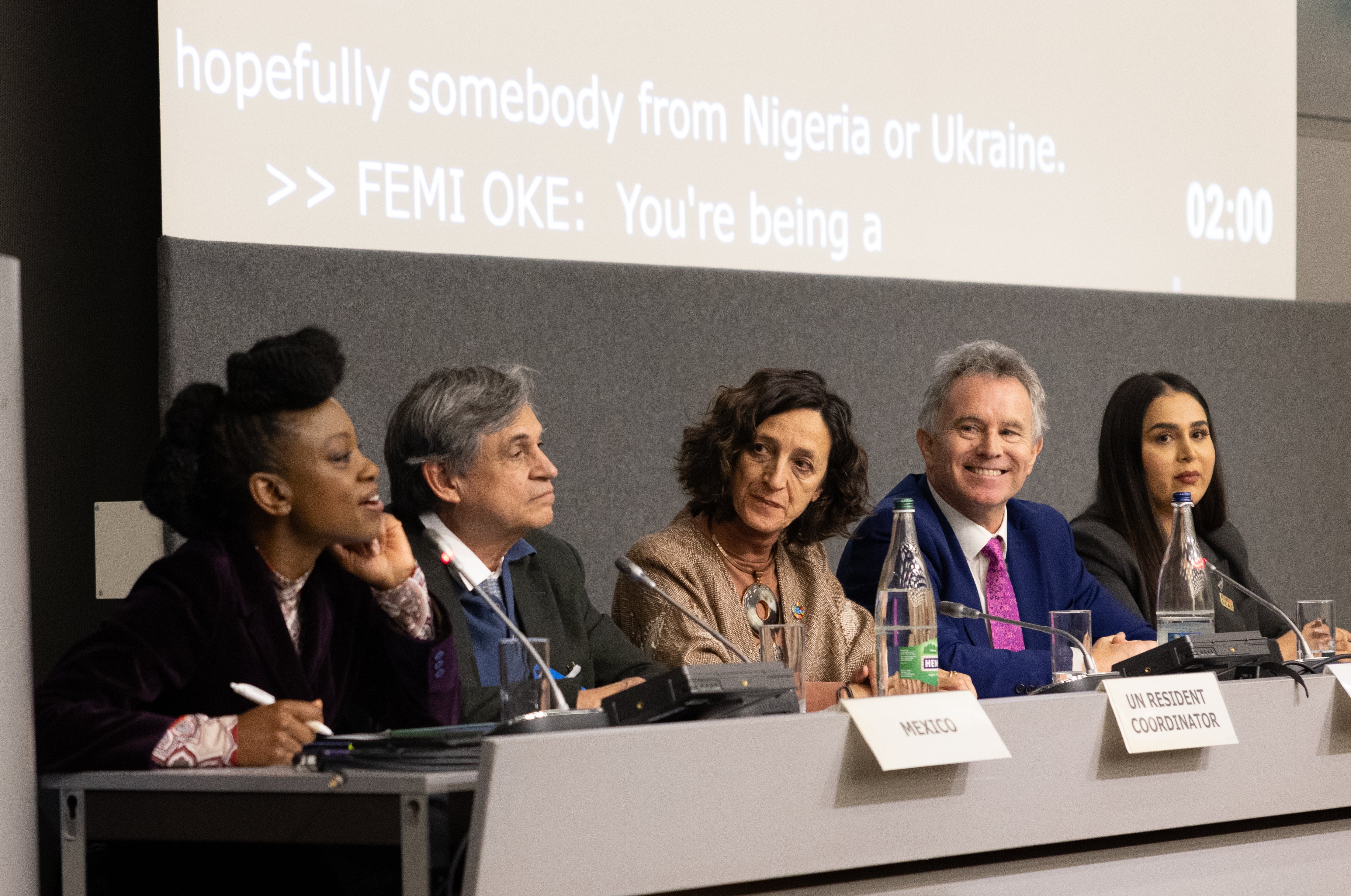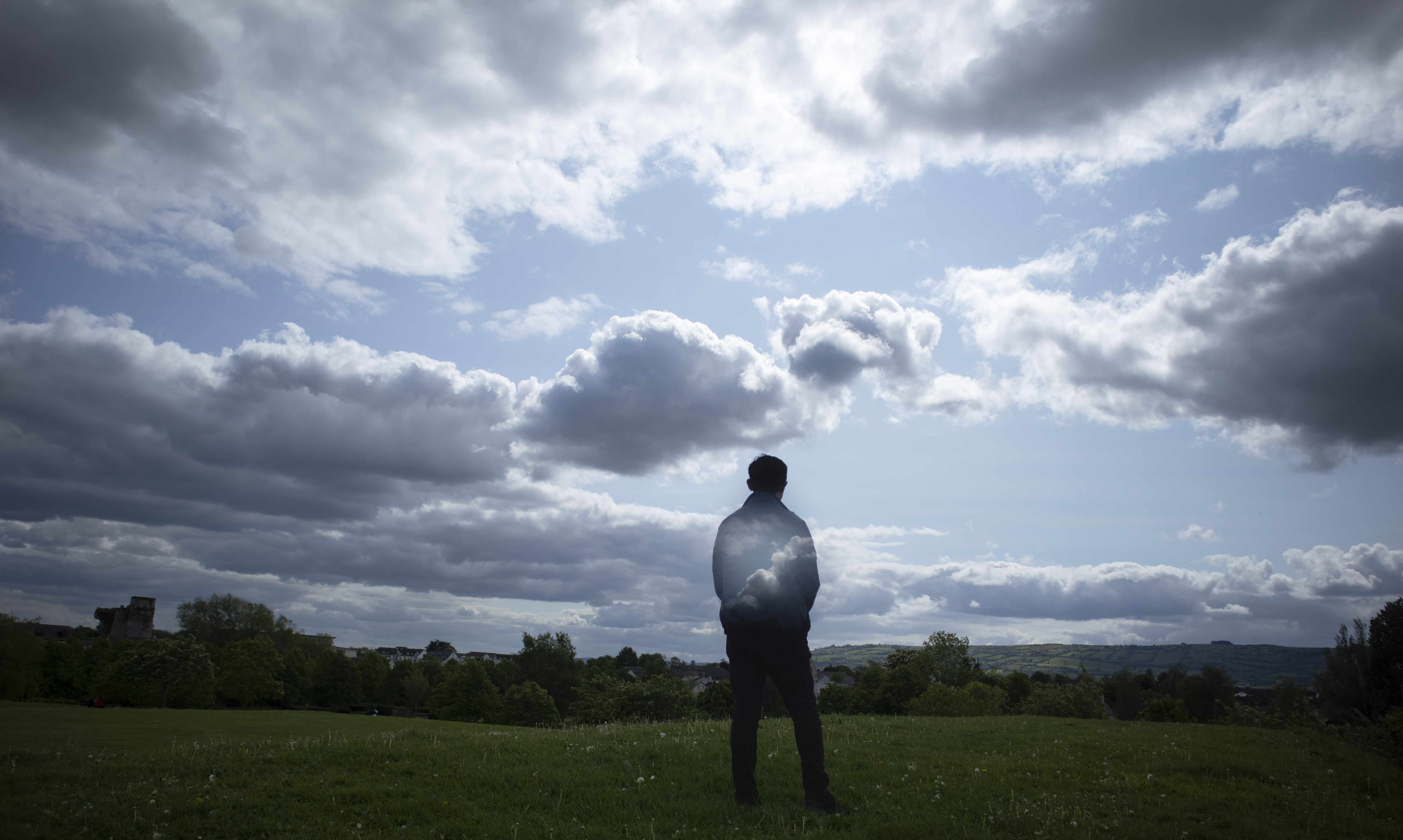An Irishman in Colombia: Giving identity to millions lost in an invisible crisis
An Irishman in Colombia: Giving identity to millions lost in an invisible crisis

Irishman Conor Flavin currently works as a Regional Information Management (IM) Officer with UNHCR in Bogota, Colombia. There, he is responsible for designing and implementing country-specific Information Management strategies to analyse and disseminate information on populations of concern.
Colombia’s beautiful landscape belies an environment that is often challenging. While significant progress has been made in recent months, there are still an estimated 5.8 Million displaced people in Colombia today. We caught up with Conor to hear about what motivates and challenges him in his work.
Conor, tell us a little about your background and how it is you came to work for UNHCR in South America?
I started with UNHCR in Kakuma Refugee Camp in Northern Kenya. I was working on resettlement and then gradually progressed into the area of information management. I come from a social sciences and human geography background that could largely come under the urban planning umbrella. I’ve always had an interest in research methodologies and the complexities of migration and displacement. Before this, I was working with UNHCR Somalia in information management.
What are the main focuses of UNHCR’s work in Bogota?
As the peace process gathers momentum the operation is focusing on durable solutions for internally displaced persons (IDPs) and conflict-affected communities that UNHCR Colombia has access to. The operationalization of this strategy also involves new thinking about how to monitor and measure the impact of UNHCR’s work with these communities. A lot of UNHCR’s work involves working with local and national authorities as well as other members of the humanitarian community through humanitarian coordination mechanisms.
From your perspective, what are the main issues for Refugees living in the region?
Any person forced to leave their home or home country seeks to restart their lives in dignity and safety. A large part of this involves being able to access basic services and generate income. Appropriate documentation and registration is important for refugees and asylum seekers to ensure they can access basic services and start to be active agents in an economy. In the Colombian context, the most affected communities tend to be in rural areas, especially people from the Afro-Colombian and indigenous populations.

As an IM officer with UNHCR, your job is to gather and communicate essential protection and programme information-what are some of the challenges you encounter in this sense?
From a geographical perspective, every country has unique regions in terms of climate, culture and living conditions. Trying to standardize monitoring tools and getting to grips with the particular challenges that each UNHCR field office faces is very difficult as you cannot be in different places at the one time. Information technology has allowed us to collect and process data remotely. But trying to humanize these processes is difficult. It’s all too easy to apply a number to a refugee or someone who has benefited from a UNHCR project without taking into account the day-to-day challenges faced by this person.
How do you find the political and cultural environment in Columbia at present?
I feel privileged to be in Colombia at this time. In personal and professional terms I see the gathering momentum in the peace process as largely positive. Of course there have been and continue to be challenges but I largely feel that Colombians are ready for a transition. It will not be easy to overcome the deep scars of conflict but I get the strong feeling that there is sufficient will to move forward especially in the recognition of the rights of displaced communities and communities that are still affected by the conflict.
Do you think there is a good public understanding of the issues faced by refugees/IDP’s both in Colombia and more broadly, in South America?
The scale and complexities of the emergencies in the Middle East, North Africa and Asia warrant a great deal of attention but the challenges faced by displaced persons in Latin America continue. Fortunately, efforts such as the Brazil Declaration and Plan of Action which was developed on the 30th anniversary of the 1984 Cartagena Declaration on Refugees by states to work together to uphold the highest international and regional protection standards, implement innovative solutions for refugees and displaced persons and end the plight of stateless persons in the region.

What are some of the more challenging aspects of your day-to day work? Are there any high-points?
IM is an area still in development. Methodologies, technology and tools are advancing very quickly and my role in bridging the gap between technical jargon and tools and what we aim to do for displaced people is not easy. When you have in mind a final product, e.g. a map or monitoring tool, and you get to deliver that product, that is when you can reward yourself. IM is quite diverse in UNHCR as protection can be a catch-all term and it is important to be able to be selective and very practical to the many demands that can come from different colleagues.
What advice would you give to someone considering your line of work?
Education: find what you love to do and go for it. Learning never stops but having a solid foundation in research skills and international human rights and humanitarian law is important. The initial step to move country and take on a new challenge is not easy, but you have to go with your gut and sense of adventure. The humanitarian sector is evolving rapidly and it is important for someone starting out to try and identify their particular area of interest.




